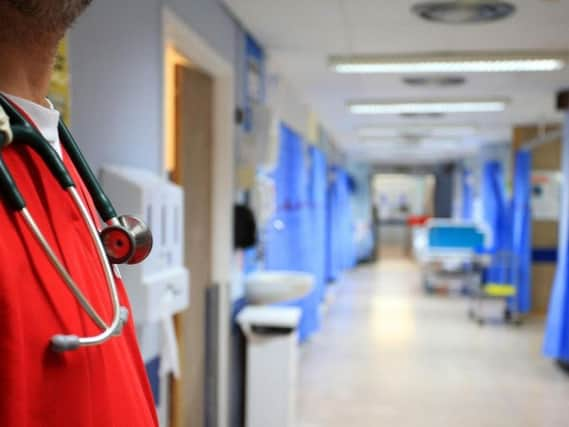Patient '˜cured' after doctors harness immune system to target advanced cancer


The success of the experimental treatment on her drug-resistant breast cancer has been described as “fascinating and exciting” by British experts.
Doctors in the US combined two different forms of immunotherapy after conventional treatments failed.
Advertisement
Hide AdAdvertisement
Hide AdWriting in the journal Nature Medicine, the research team said the unnamed 49-year-old woman had been disease-free for almost two years after the treatment halted the rapidly-spreading cancer in her liver.
Professor Alan Melcher, from the Institute of Cancer Research in London, said: “This treatment represents a remarkable success in terms of translating our basic biological understanding of how the immune system responds to cancer into a real treatment of real benefit.”
Peter Johnson, Professor of Medical Oncology at Southampton General Hospital, said: “This is another piece of evidence confirming that some cancers are recognisable by the body’s immune system and that if this can be stimulated in the right way, even cancers that have spread to different parts of the body may be treatable."
The patient spent 10 years without cancer after having her left breast removed.
Advertisement
Hide AdAdvertisement
Hide AdBut then the disease returned with a vengeance and failed to respond to multiple hormonal and chemotherapy treatments.
The US team, led by Dr Steven Rosenberg, from the National Cancer Institute in Bethesda, Maryland, removed immune system “T-cells” from the cancerous breast tissue, multiplied them in a laboratory and injected the cells back into the bloodstream. They also developed “checkpoint inhibitors” designed to overcome a cancer’s ability to shield itself from the immune system.
Dr Simon Vincent, Director of Research at charity Breast Cancer Now, said: “This is a remarkable and extremely promising result, but we need to see this effect repeated in other patients before giving hope of a new immunotherapy for incurable metastatic breast cancer.
“This is a hugely exciting first in the treatment of advanced breast cancer. But it has only been shown to work in a single patient and we now need larger trials to investigate how the T-cell therapy and ‘checkpoint inhibitors’ have worked together to attack the secondary tumours.”